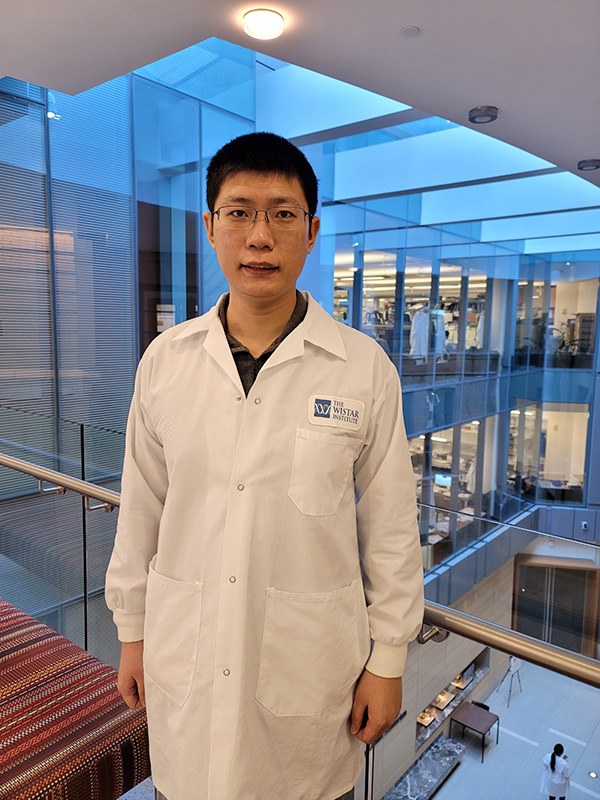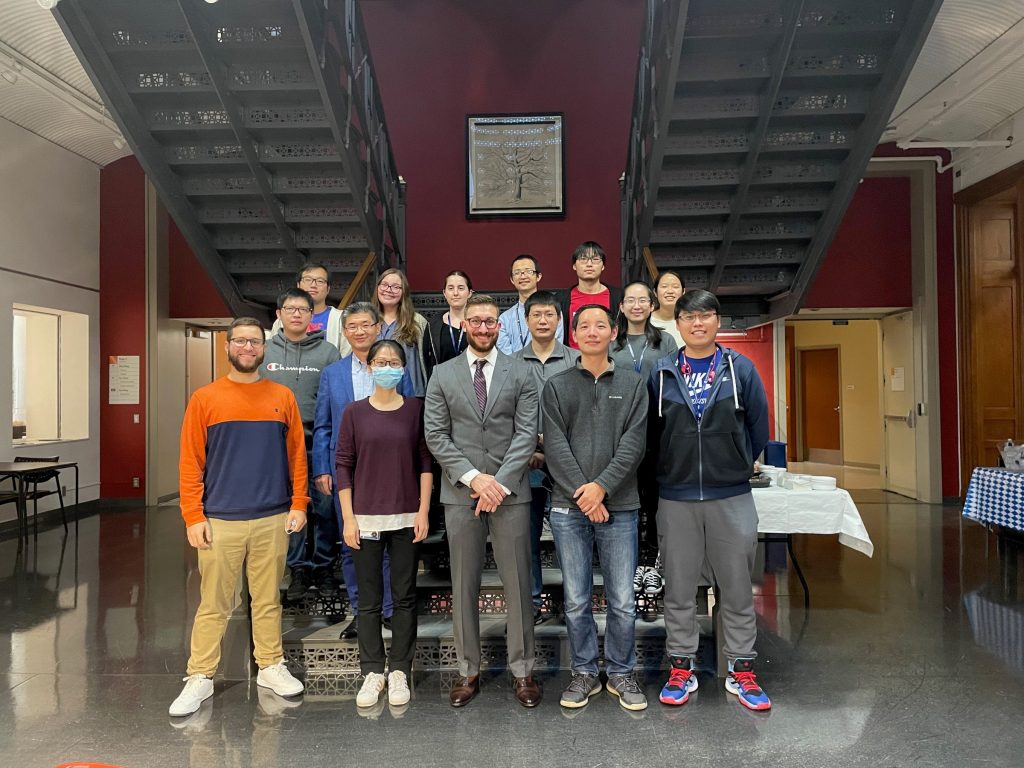
Dr. Wei Zhou, of The Wistar Institute in Philadelphia, is a 2021 recipient of OCRA’s Ann & Sol Schreiber Mentored Investigator Award, mentored by Dr. Rugang Zhang. With his project, “Targeting the Mevalonate Pathway in ARID1A-Mutated Ovarian Cancer,” Dr. Zhou is investigating ARID1A mutations, in search of better therapeutic options for patients with ovarian clear cell carcinoma (OCCC), a rare but especially challenging ovarian cancer subtype.
What initially sparked your interest in science?
My primary interest is cancer research, especially the study of cancer cell metabolism.
What drew you to the field of ovarian cancer research?
During my previous work experience, I met some very good OBGYN doctors. Through many years of collaboration, I gained a lot of clinical knowledge about ovarian cancer. I then spent all my graduate student time focused on an ovarian cancer project. This became my area of interest and expertise. Now I want to dedicate my entire life to ovarian cancer preclinical research.
Can you explain your research project?
There is a subtype of ovarian cancer that affects only 10% of all ovarian cancer patients, but exhibits a very poor prognosis. It is called ovarian clear cell carcinoma (OCCC). The growth of OCCC involves the mutation of tumor suppressor genes, such as ARID1A. We found that in the ARID1A-mutated OCCC cells, the metabolism processes are different from normal cells, such as cholesterol synthesis. Here we found that statins, the inhibitors of the cholesterol synthesis pathway, can selectively target the OCCC cells that have the ARID1A mutation. These findings provide new therapeutic strategies to target ovarian cancer.
What motivates you to persist in your research?
My interest in cancer research and biology behaviors motivates me to keep pursuing new findings and therapeutic approaches. I believe someday we will overcome this horrible disease.
What is your hope for the field of ovarian cancer research?
My greatest hope is for the further development of translational medicine so that the findings of ovarian cancer researchers can better help with clinical treatment.
If you had the opportunity to personally thank someone from the OCRA community who supported your work, what would you say?
Thanks so much for providing this opportunity to us, especially to junior scientists who have just come into the field, like me. The funding support from OCRA’s community has helped me initiate my work more easily, and you also provide this amazing platform for ovarian cancer researchers to connect!

See more OCRA-funded research projects focused on ovarian clear cell carcinoma.


